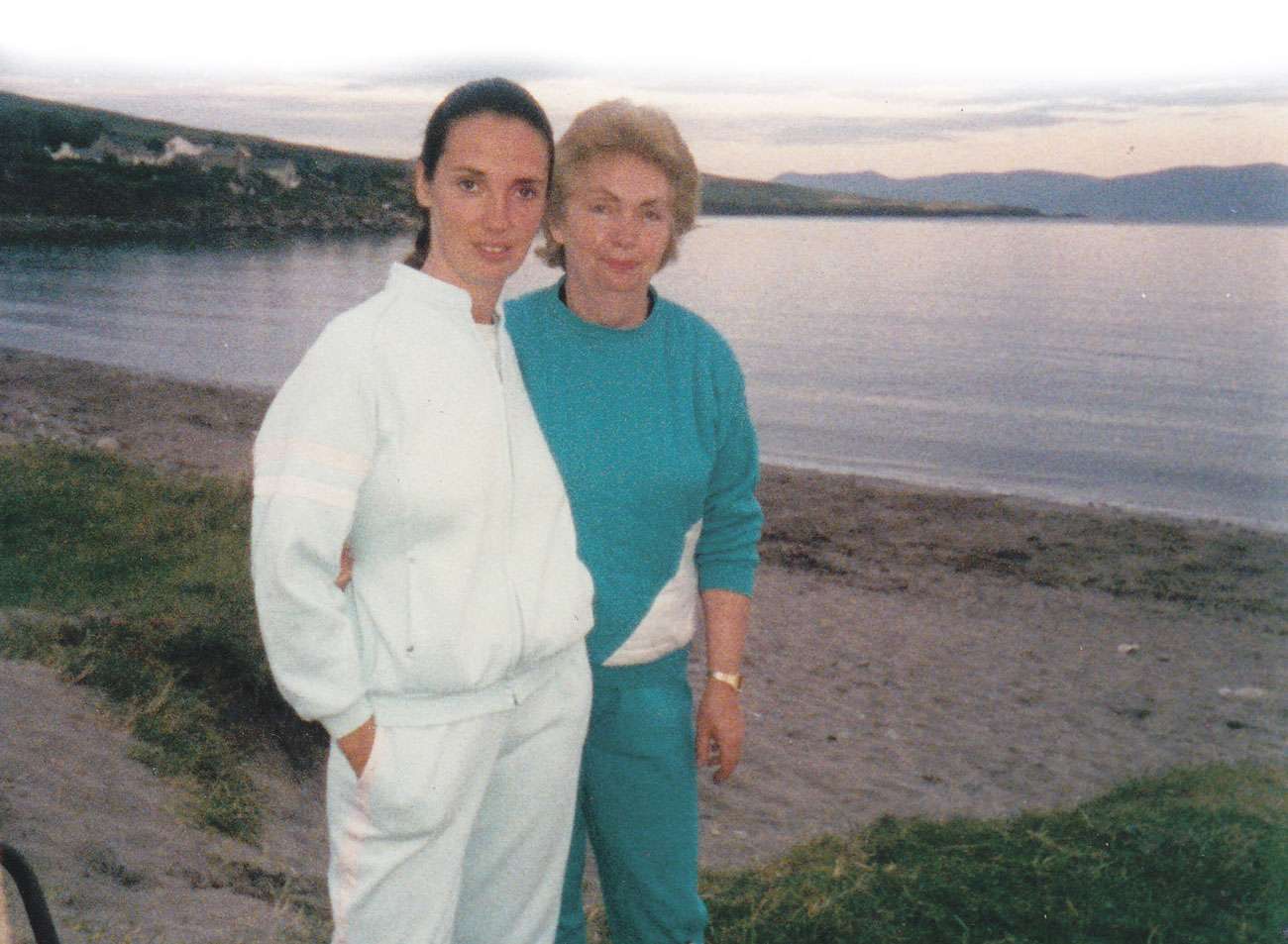
My Mum and I sharing some quality time together in Ireland
My name is Caitriona Walsh. I am a singer. You will often hear it said: “music is my life”. It has become a mantra on X-Factor and many other shows: people expressing their passion, or preferences – like a golfer saying ‘golf is my life’? But for me, music was much more than that: music forged my life. And it did so in ways beyond music – or were they? It took me on a journey, which brought with it many Joys and Sorrows. A journey, which began in Ireland, took me first to England and then all over the world. A journey I never expected to make, and did not plan.
I can’t say I recall my earliest memory of song or singing, but song is in all of us. It’s part of the Rhythm of Nature, of life itself. They say that babies can respond to music in the womb; that long before they can speak or learn words, they can understand music. We are not the only singers in nature. Haven’t we all been uplifted at some time or other by the song of the birds? It catches our attention in a unique way. And we marvel at the mystery of whales, lulled by their singing to each other.
My earliest memory of song was being in my junior school choir. It was mesmerizing: children who would fight in the playground would harmonise in the choir! Except for me. The singing teacher had taken a great disliking to me, I will never know why. She never allowed me to sing, but made me play the triangle! When I reached senior school, like most teenagers, I had started listening to my own music – Janis Ian and David Gates in particular, soulful music mainly. I asked my parents to buy me a guitar and I started to teach myself to sing in my room, writing my own songs. One day I turned up at a Church in my native Dublin, where there was a very well-known choir at the time. They let me in! I didn’t know it, but one of the reasons turned out to be that I had a thing called ‘perfect pitch’! In Ireland there is a national Music Festival and competition called ‘Slogadh’. It was open to all – singers, choirs, ceilidh-bands and instrumentalists of all descriptions. I had barely joined the church choir, when the Choir master persuaded me to enter the competition.
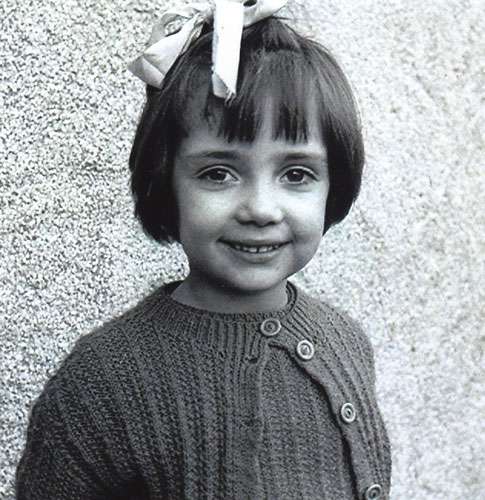
Me aged 5 in Ireland
I went along with my guitar and sang my own song. I was shocked to hear my name called out as the winner in the singer’s category; I really hadn’t expected it. But the greatest shock was yet to come! At the end of the competition the judges retired to consider and announce the overall winner of the coveted ‘Maire De Gray Trophy’, which is given to the act considered best in all categories. And it was me! Out of all the singers, choirs, instrumentalists and bands in Ireland! I had just turned 14.
The following year I entered another national competition called ‘Pepsi Teen Talent’ – the X-Factor of its day. I won that too! It led to my being ‘spotted’ by London Impresario and TV show host ‘Hughie Greene’, who brought me to London to record some demos with a full orchestra. The offers back home in Ireland came flooding in and by the time I was 16, I was not only being asked to sing as a solo artist on recordings and TV shows, but also as a backing ‘session’ singer for artists such as Madeleine Bell and Chris de Burgh and in the 1979 Eurovision Song Contest too! I was a very lucky girl indeed.
But my proudest moment at this time was in recording the song to welcome the Pope on his first ever visit to Ireland. ‘Viva il Papa’ went straight to number one and stayed there for thirteen weeks – a record unbroken to this day.
And so my journey in life began, led, as you will see, by music. I had no idea where the journey might lead; but it was to be a journey through life in all its fullness, visited in ways you might not expect, and which I certainly did not anticipate.
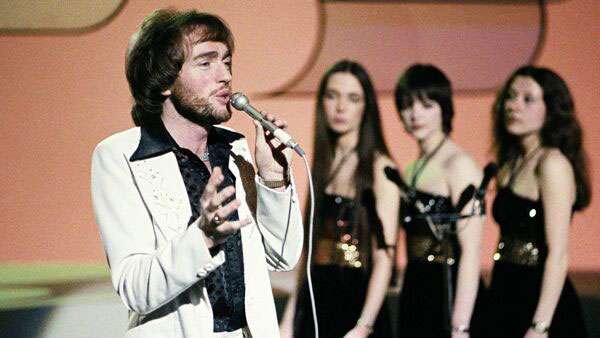
Eurovision 1979, Ireland’s Cathal Dunne singing Happy Man in the qualifying heats. I’m singing 3rd from the right
In 1979 I had also been invited to audition for the internationally renowned singing group The New Seekers. I was to replace the dark haired girl in the group, Eve Graham. I got the part, as they say, but it would involve moving to London. And with that move, the real journey began.
On the very day I arrived in London, I met my husband, the unbelievably handsome (he told me to write this) cellist, Nigel Warren-Green. He had played all over the world with Frank Sinatra, and as a session player on the albums of many legendary artists, from Elton John to Tony Bennett to Michael Jackson. He was also a co-principal cellist with The London Symphony Orchestra and The London Virtuosi (the flute player in that band, by the way, was James Galway!). Nigel was 24 and I was 21. We had a whirlwind romance, but he will always maintain that he knew he was going to marry me from the moment he first heard my name – long before we had ever set eyes on each other.
We married in 1982 in Dublin. At the time I was playing the lead in the Dublin production of The Pirates of Penzance, taking on the role given to Linda Rondstadt (another of my heroes) in the Broadway production. It was to become the longest-ever running musical in Irish Theatre history (until ‘Riverdance’ came along – but more of that later). It was said at the time, that so many of the greatest session musicians in London and Dublin attended our wedding that it was impossible to put an orchestra together in either city for a week! I was played up the aisle by Nigel’s twin brother, Christopher Warren-Green, and his best friend Roy Gillard, who at that time were the leaders of The Philharmonia and London Philharmonic Orchestras respectively. And we were played down the aisle by our good friends, The Dubliners!
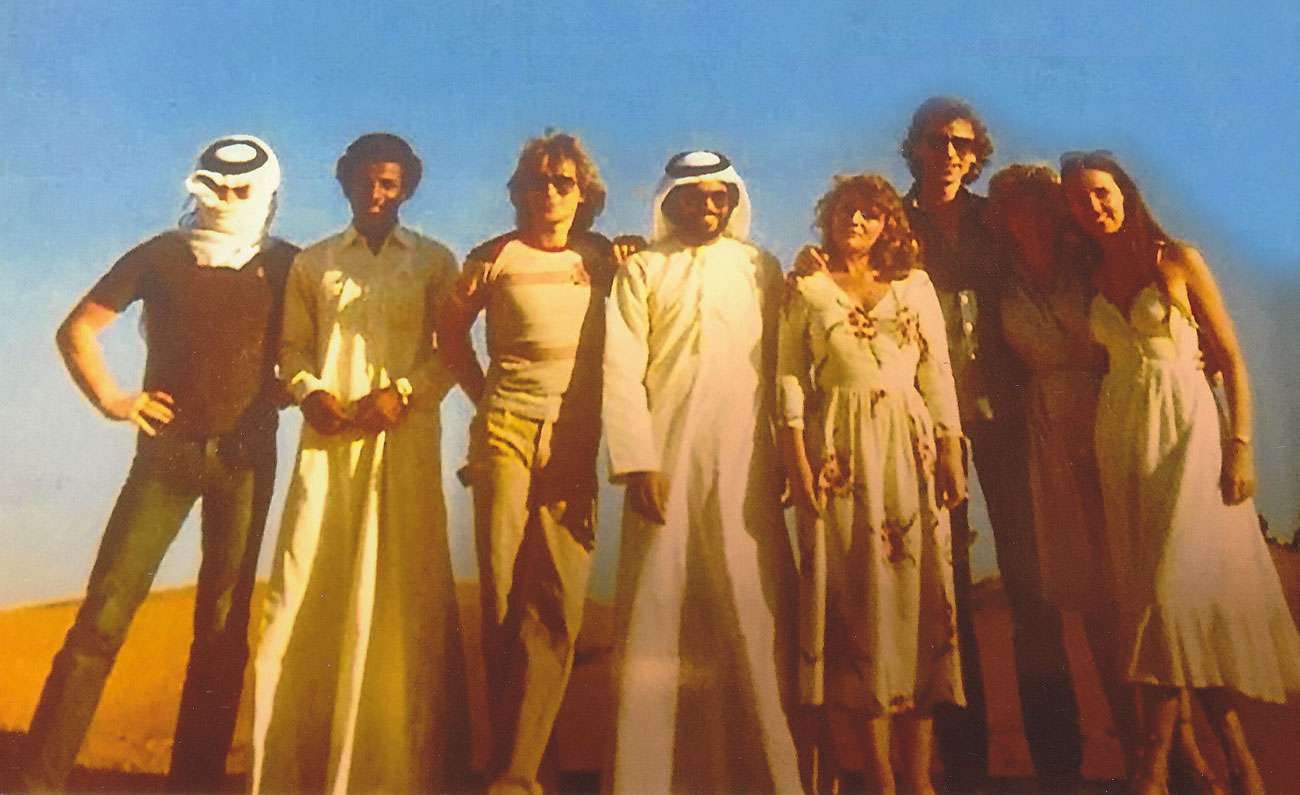
Travelling all over the world with The New Seekers
Christopher went on to become a highly successful conductor: he conducted The London Chamber Orchestra at all three of the recent Royal Weddings: Charles and Camilla, William and Kate and Harry and Megan!! But he played me up the aisle first! It was a wonderful, heady time, filled with joy, love, friendship and music! It seemed it would never end.
Then something happened which I was not expecting. We had been trying for a baby, but nothing had happened. Then came the devastating news – that a child was not to be and never could be. Being told that you will be childless puts you into a limbo that is impossible to describe. People think they know, but they don’t, unless it happens to them. Neither of us was expecting or could have imagined the trauma of it. It’s like a bereavement, but without a death. People try to comfort with reassurances that ‘worse things can happen’ or ‘there’s always adoption’, but these well-meant advices do little or nothing to compensate the overwhelming sense of loss and finality. It was as though the music had stopped. But music, as we were to discover, never stops. It dwells in the realm of the spiritual and of the universe.
Trying to make sense of our predicament, we turned to the font of all wisdom, and prayed. We knew we couldn’t make children, but that didn’t mean we couldn’t have children. The world was full of little children with no parents. It still is. And we were parents with no child. And hard as it was to accept, it began to dawn: this was part of God’s plan. As soon as we had this thought, and surrendered ourselves to this realisation, things began to happen. The music hadn’t stopped: it was still playing.
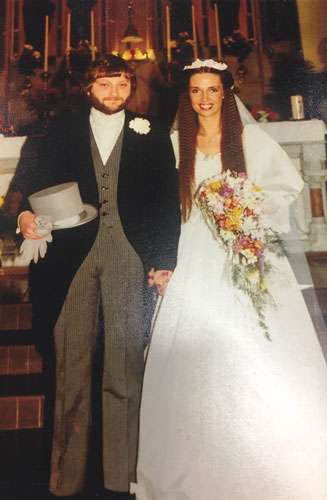
Nigel and I at our Wedding
Some friends of my mother in Dublin had adopted three children from Beirut. They asked to see us. We knew that this was a kindly attempt to reassure us about adoption, but we did not expect what we found: complete normality. A completely normal family! This sealed things for us. We would adopt where there was an urgent need – in Beirut. But Beirut at that time was a total war zone, complete with hostages: Terry Waite, John McCarthy, Brian Keenan…
The Dublin family put us in touch with a Nun, Mother Patrick, who at the time was running a refuge in the heart of the besieged city: old people, abandoned mothers with children, Jews, Christians, Muslims and orphans. “Of course we have a baby for you”, she said. “There are too many. We need to get them out”. But how? In order to get the baby out, we needed to go in. This was a war zone: all travel to and from the UK prohibited. And this is where the music really kicked back in.
Around this time, we had formed a music production company and taken over the management of The London Chamber Orchestra. I was responsible for booking the musicians and running the administration. The Orchestra had just made a number of award winning classical recordings, and was playing to sell out audiences on the South Bank. It was also being ‘hired’ to perform on recordings by some very famous contemporary artists, like Tony Bennett and Placido Domingo. Amongst these was an artist called “Fairuz”, unknown here, but a legend throughout the Middle East. She had come to London to give a concert to highlight the plight of Lebanon and ALL its citizens. She had also got to personally hear of our dilemma. Quite how, we don’t know, but thanks to her intervention we were given visas and told how to get in and out of Beirut with safe passage (it wasn’t that safe in outcome – we were held up and interrogated at gunpoint on the return leg, ‘babe in arms’, but that is another story).
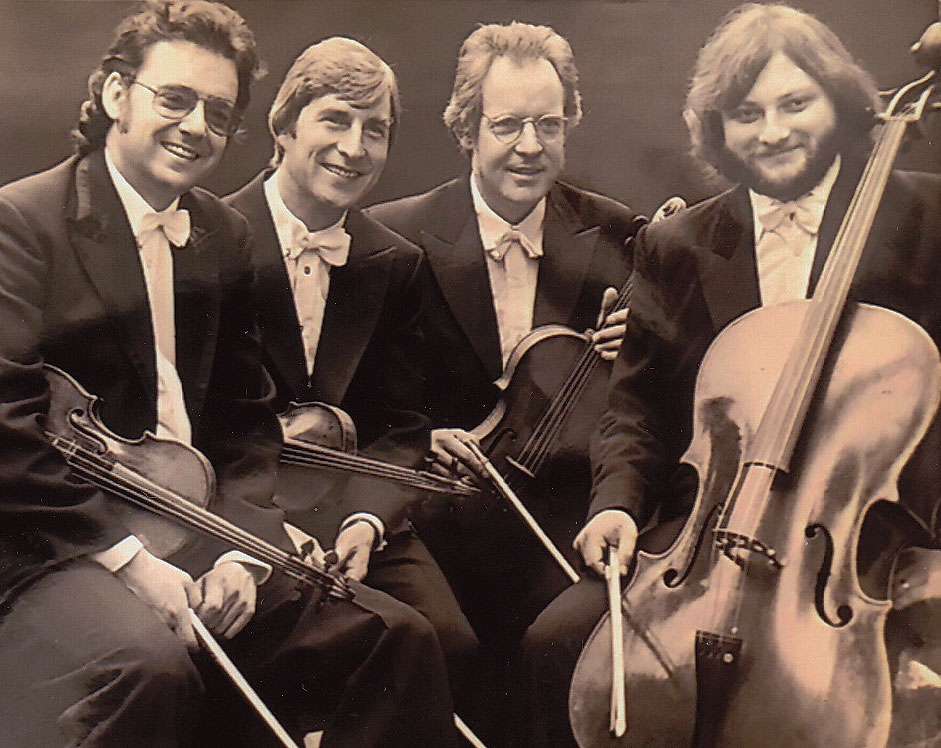
A musical quartet, Nigel is far right
We returned with the greatest gift God can bestow: our daughter Aisling. It is hard to convey the feelings of Joy, especially when you were once convinced it was never meant to be. But we had lived in Hope, and Hope delivered on its promise. We have two adopted children now, more about that later. Perhaps the single most rewarding thing about adoption, is that you never lose your sense of ‘wonder’: hardly a day passes when you don’t marvel at your child and think ‘what did I do to deserve you’? If you allow it, it is the gift that never stops giving. Pure Joy. But what we left behind in Beirut, were many Sorrows. Harrowing sights and memories: the children we left behind. What to do?
The world’s press at the time was full of the plight of the ‘Seven Beirut Hostages’, and rightly, of course. But what of the children? We put a call into ‘Save the Children’ and told them we were thinking of putting on a concert to raise money for the children we had left behind. “How many children are trapped in central Beirut at the moment”, we asked? “Forty thousand”, came the reply, “and we cannot get any attention on their plight”. They were forty thousand children, all hostage to the war. Not just seven hostages, but forty thousand. There was no other way of looking at it.
This was beyond the reach of a few charitable quid. It needed more, but what? Music once again came knocking. The Queen Elizabeth Hall in London had just called us, completely out of the blue, announcing that they had a short notice cancellation. Did we want to ‘pick up the date’? YES!! “What do you want to bill the concert as”, they asked? “You must hurry – the listings and advertising are going to print today”!
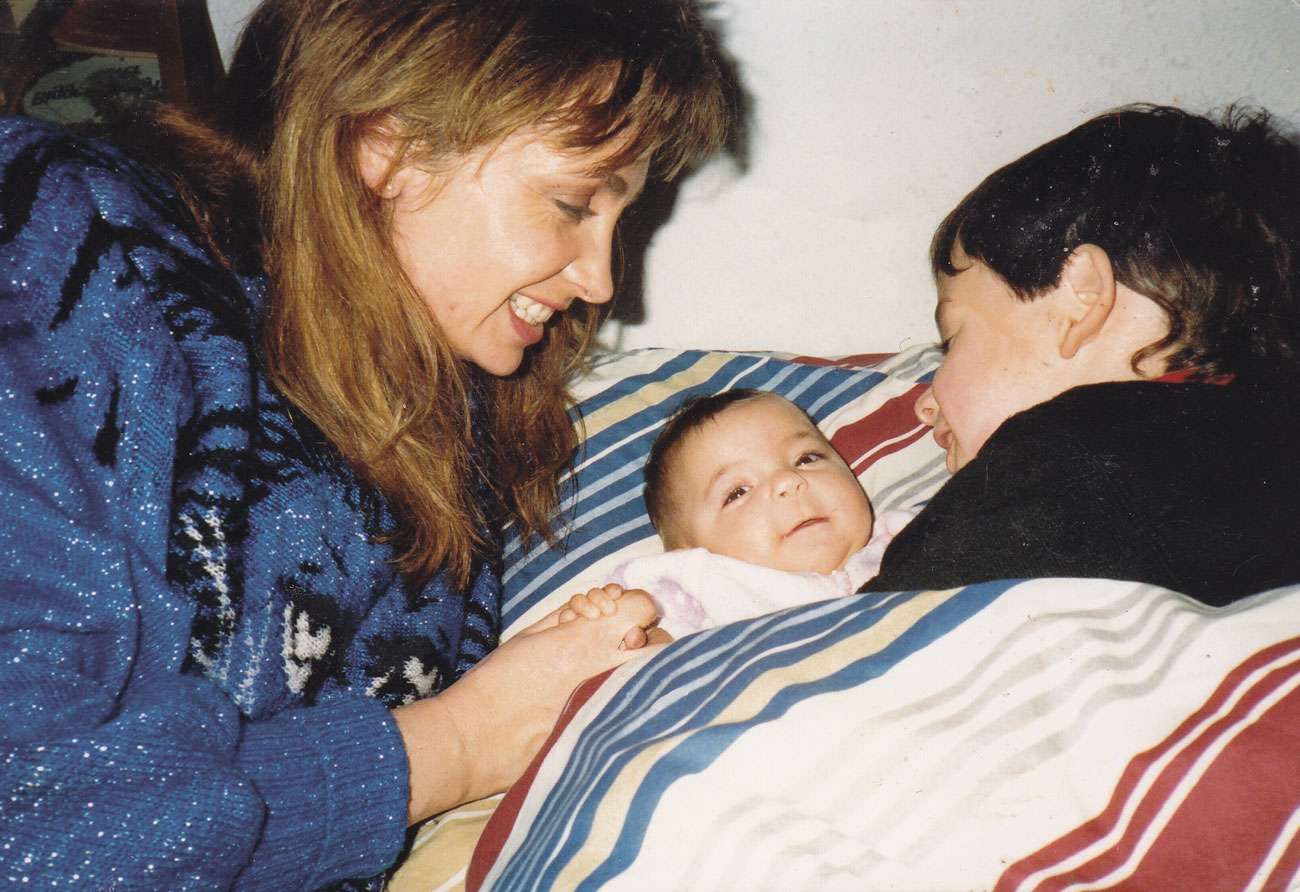
We just took a stab at it – “The London Chamber Orchestra in Concert, Children of Lebanon, Forty Thousand Hostages”. That’s what we called it. And the immediate establishment reaction was furious. “What do you mean, Forty Thousand Hostages? The South Bank is not a political forum!” It raged on. But it was too late. The Queen Elizabeth Hall was ours! We said: “Don’t ask us. It’s just a Charity concert. You should ask Save the Children, Unicef, Oxfam…” And they did. And then the raging voices went quiet.
Next came a call from the BBC. What’s really going on, they asked? So we told them. They filmed the concert (which raised a small fortune) and made a documentary surrounding its motivation. Virgin put out a record. Newspapers got hold of the story and the debate continued, both for and against. But the Charities told us that from that moment on, they were heard, and things got better for the Children. One concert.
We came to learn that the world’s first orphanage, open to all, irrespective of birthright, status or religion, was called ‘The Foundling Hospital’ in Bloomsbury. It was founded in 1752 by Captain Thomas Coram. What is less well known, is the amount of monies raised by artists of the day, especially the Composer Handel and Painter Hogarth, without whom The Foundling Hospital would not have come into being. Its Royal Charter, granted by King George II, was hard won and unique: but it set the legal footprint for all future Charitable endeavour, throughout the world, and has maintained Royal patronage ever since. Handel donated the proceeds from performances of the ‘Messiah’ to the Hospital – a tradition upheld to this day. He was congratulated on the first performance of his masterpiece with the words: “A most Noble Entertainment, my dear Handel”. To which he replied: “an Entertainment my Lord? I should be sorry if that is all it was. I wish to make them better”. Today’s patron is Her Majesty Queen Elizabeth the Second.
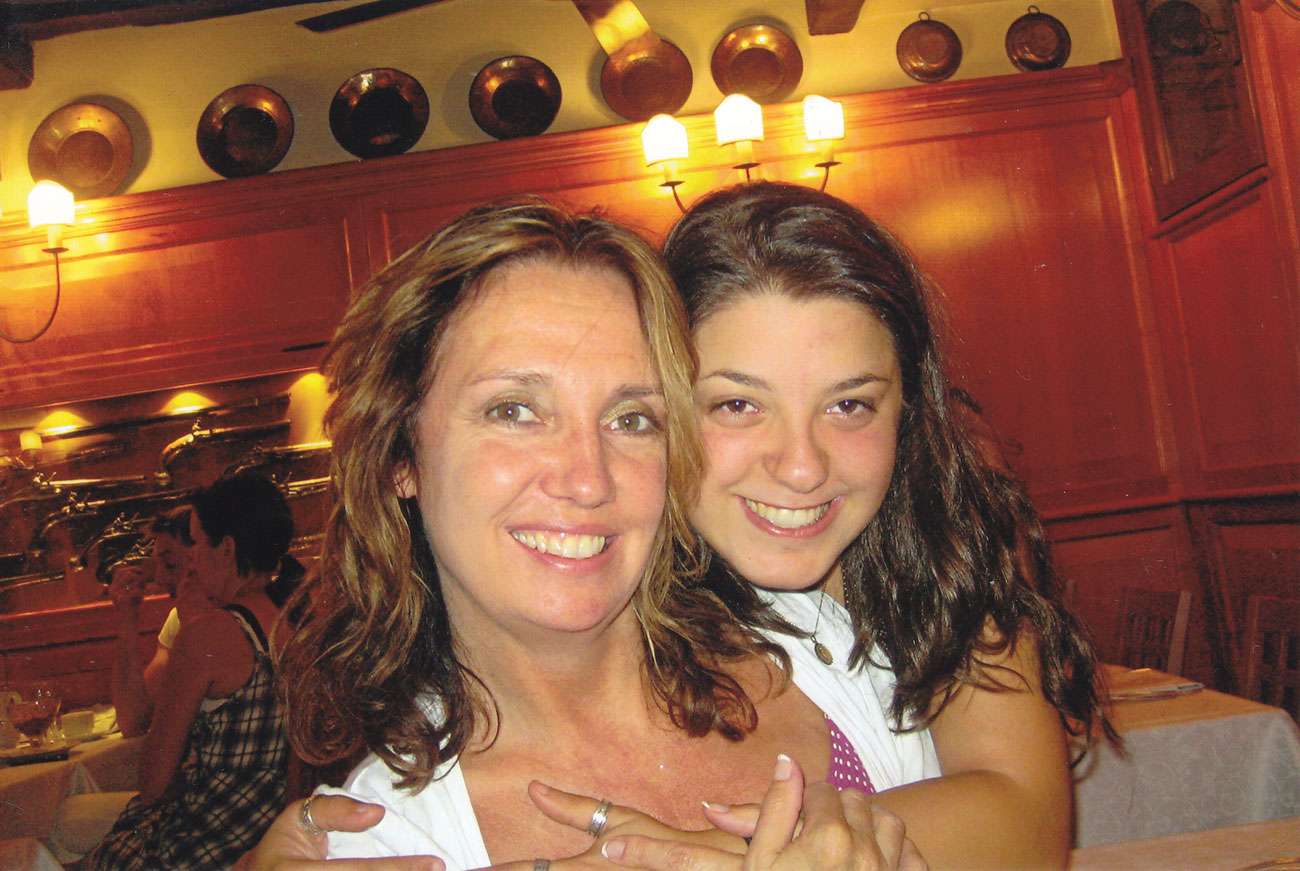
Being a mother to Aisling is a truly gifted experience
Music has always played on. And as the success and critical acclaim of our orchestra grew, so did our ability to influence. The plight of orphans in Romania, following the downfall of Ceausescu, had stirred public sympathy, as well as our own. So once again, we put on a concert, this time only too aware of the potency of highlighting the plight of the children in this way. Our local church picked up on it. We donated funds from the concert to pay for lorries and shipping, and the church, rising to the challenge, went on to fund relief convoys to those Romanian Orphanages for the next seventeen years. Musicians gave of their services freely, people gave of their money, and the music bound it all.
During all this, I had spent quite a time away from singing. But I had the privilege of working with, and being asked to provide orchestras for, some of the greatest artists in the world: Placido Domingo, Andreas Bocelli, Tony Bennett, Bono, The Corrs, Van Morrison, Barry Manillo, Michael Crawford, Shania Twain, Whitney Houston, Jamiroquai, Sinead O’Conner, Julian Lennon and many others.
They say “God takes with one hand, but gives with another”. I have never liked that expression, because it sounds like there is a trade-off – a bargain to be made. But looking back, if you follow the path set out for you and live in Hope, extraordinary things can and will unfold in your life, Joys as well as Sorrows, but – you will have lived a life!
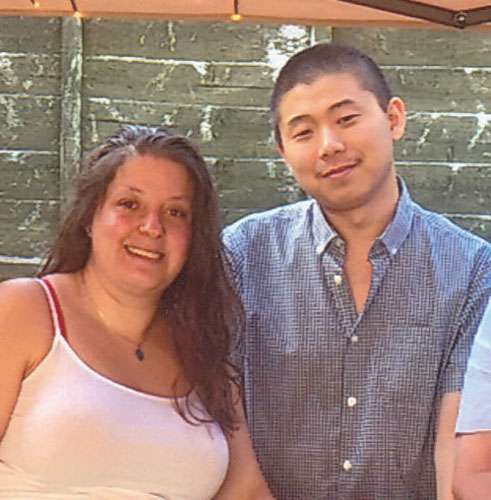
Aisling (left), who is married with children of her own now and Oisin who is at Uni studying to be a lawyer
Other Joys were yet laid in store for me, from both sides of the coin, as it were. I got a call one day from an old friend and colleague, Bill Whelan. Bill wanted me to go to Windmill lane Studios in Dublin to record a couple of tracks for a project he was working on. It was to be called: “Riverdance”. I turned up and sang the three solo soprano tracks on the very first recording. Neither of us had any idea of what was to unfold. But what did unfold also led to Bill asking me to take over his company ‘Irish Film Orchestras’ (with the success of Riverdance he became otherwise engaged!). I took the company from strength to strength, recording over forty film sound tracks including ‘Passage to India’, ‘A River Runs Through It’, ‘Remains of the Day’, ‘Pebble and the Penguin’ etc. etc. Then came the shows: Radio City Christmas Spectacular, Feet of Flames, Riverdance and – all the music for the rides and shows in Disneyland, Paris! This led to me being asked to provide the orchestra and music supervision to ‘The Wexford International Opera Festival’. I found myself well and truly back in the world of song!
But an even greater Joy was yet to come, albeit brought on by a great Sorrow. Around this time, a Channel 4 documentary called ‘The Dying Rooms’ had exposed the fate of deformed and disabled children abandoned to Chinese orphanages. These babies were deemed to be unadoptable and unsupportable because of their deformities and were put into separate rooms, fed only on water. It took only days for them to drift away: a form of state sponsored ‘start of life euthanasia’, if you like. Many, many good people became galvanised by this. For us, the old formula kicked in. We arranged a Gala Charity Dinner in Dublin Castle. Many celebrities, musicians, film stars and actors rose to the call, either attending in person or donating memorabilia for auction. One such item was John Lennon’s personal gold disc of ‘Help’, donated by his son, Julian. The Corrs were there, Patrick Bergin, Paul Daniels, and his wife Debbie McGee who both spent the whole night touring round the tables, entertaining each and every one. It was utterly magical in every true sense of the word. The creative arts, had come through for the children, yet again.
The success and publicity, which the Gala Dinner attracted, led to another extraordinary and unplanned outcome. A group of friends, ourselves included, set up a charity: International Orphan Aid (Ireland). It soon gained NGO status and attracted a Chairman, Irish Supreme Court Judge Peter Findlay. We quickly established relations with the Chinese, whom we vowed to help, rather than judge, over their management of the avalanche of abandoned children brought on by the well intended, but ill-fated ‘one child policy’. We set about getting children out of the dying rooms, but to do so required first mounting a challenge to certain laws about to be ratified in Europe under The Hague Convention. These laws would have had the effect of severely inhibiting overseas adoption, on the incredible pretext that the children would be better off in institutions within their native cultural environment, than being brought up in cultures alien to them (a dogma which persists among some social services to this day). Well there’s no culture in a cot, and absolutely no substitute for a loving familial environment. The challenge was fought and won under the Irish Constitution: an action which has benefitted children, as well as European childless couples, ever since.
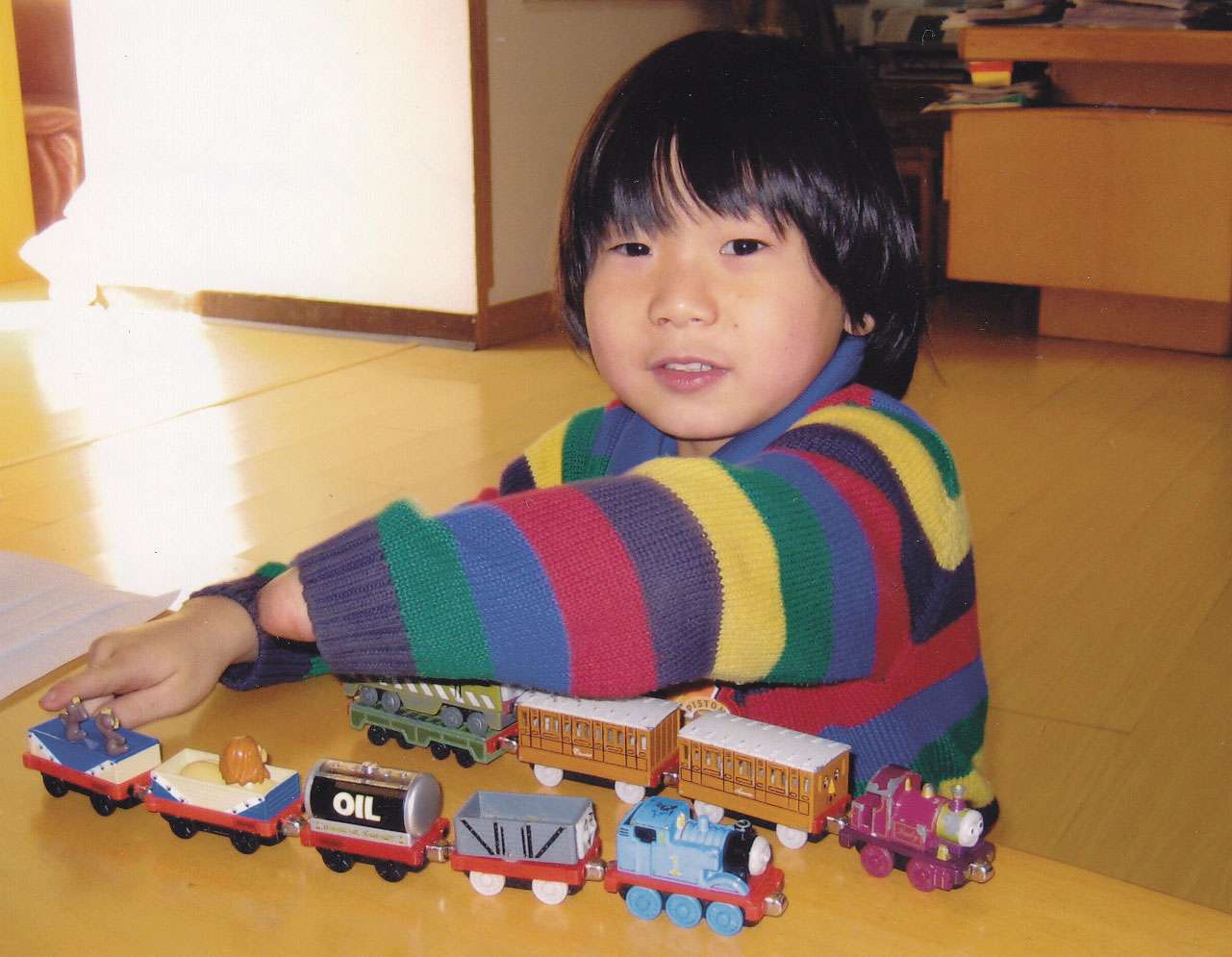
Oisin as a small boy playing with his toys
Throughout all this, the music played on, bringing with it yet more rewards, which could never have been foreseen and which are beyond price: one of the children whom we brought out of the dying rooms, was our son Oisin. He has just turned twenty now, and is taking his degree in Humanitarian Law. His decision – not ours.
Today I live the quiet life in Cranleigh. Recently I thought about handing some of it back, by giving singing lessons. I would like to use some of the money from ‘paying customers’ to subsidise teaching less well off, talented children. It’s a hard thing to set up though. If anyone has any ideas?
If there is a moral in this tale, it is this: follow your path, work like everything depended on you, pray like everything depended on God. Any small act of human kindness or generosity, no matter how small, is another step in the march of human progress. We can all do it and most of us do, without even knowing it. My first steps, were charted not by me, but by God, all those years ago, when, as I thought, he denied me children. But my life became surrounded by children. And what seemed a curse at the time, turned out to be the Foundation Stone in all that was to follow.
All I had to do was just that, follow.











